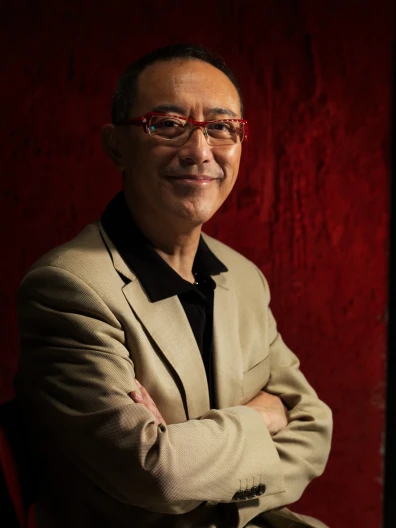
Fredric MAO Chun-fai
2014 Honorary Doctorate

Citation
After graduating in English Literature from Hong Kong Baptist College, Mr Fredric Mao Chun-fai studied abroad, obtaining his Master of Fine Arts Degree in Theatre Arts from the University of Iowa, USA. He established his acting and directing career with professional theatre companies in the States, being appointed Artistic Director of the Napa Valley Theatre Company in California at the age of 27. In 1976, he made his New York Broadway acting debut in the original production of the Harold Prince/Stephen Sondheim musical Pacific Overtures.
When The Hong Kong Academy for Performing Arts was established in 1985, Mr Mao joined its School of Drama as Head of Acting and taught for 15 years, training several generations of local talent. As a director, he introduced Hong Kong audiences to the major works of Shakespeare, Moliere, Chekhov, Shaw and Brecht, while also supporting and developing original works from Hong Kong.
Mr Mao took over as Artistic Director of the Hong Kong Repertory Theatre (HKRT) in 2001, a post he held until 2008. His many distinguished productions, including Sweet & Sour Hong Kong (musical), Love in a Fallen City, and Secret of Resurrection, met not only great acclaim from local audiences but also resounding success when taken to Shanghai, Beijing, Toronto and New York. Mr Mao was given the title of honorary “Director Laureate” upon his departure from HKRT.
Mr Mao has received numerous awards, including “Best Director” five times at the Hong Kong Drama Awards and “Artist of the Year (Stage Director)” from the Hong Kong Artists’ Guild. In 2004, the Government of HKSAR awarded Mr Mao the Bronze Bauhinia Star in recognition of his outstanding contribution to the Hong Kong performing arts scene. He also received an Honorary Fellowship from the Academy in 2005 and an Honorary University Fellowship from Hong Kong Baptist University in 2007.
Over the years, Mr Mao has given lectures at Stanford University in the USA, the University of Toronto in Canada, and Beijing University as well as Beijing Central Academy of Drama in China. After founding Performing Arts Asia in 2008, Mr Mao has completed a research project for the Government of HKSAR on the practice of mainstream theatre in Hong Kong. Since 2010, a series of “Theatre Mentoring Programs” has been carried out to nurture the further development of theatre artists from various disciplines.
Mr Mao’s original work The Liaisons, a multi-disciplinary production fusing Cantonese opera with modern drama, premiered at the Hong Kong Arts Festival 2010, and was a huge success, being later presented at the Shanghai World Expo and Beijing’s famous People’s Art Theatre, where it gained further recognition. It was later awarded “Best Modern Chinese Opera Award” by Shanghai First Drama Award in 2011.
Mr Mao’s interest in traditional Chinese opera began in childhood. He studied Peking opera (Mei School singing) with Master Pau Yau- tip in Hong Kong, and experimented with the ingredients of Chinese opera in many of his stage productions. Mr Mao was invited to direct Emperor Dowager Cixi and Princess Deling, an opera created for the National Peking Opera Company in Beijing in 2010. He also adapted and directed a new Cantonese opera production The Last Emperor of Tang as the opening event of the Leisure and Cultural Services Department’s Chinese Opera Festival in 2011.
Mr Mao currently serves as Convener of the Hong Kong-Taiwan Cultural Co-operation Committee (HKTCCC), member of the Performing Arts Committee of the West Kowloon Cultural District (WKCD), and member of the Programme Committee of the Hong Kong Arts Festival.
As Convener of HKTCCC, Mr Mao was responsible in 2012 and 2013 for presenting “Hong Kong Week”, an arts and cultural festival, in Taipei. At the invitation of WKCD, Mr Mao has also been involved in its Xiqu Centre development as well as being the Curator for the “West Kowloon Bamboo Theatre 2014”.
Mr Mao served as Deputy Chairman of the Academy’s Council from 2010 until February 2014, when he stood down after accepting the Academy’s invitation to assume the Chair of its newly established School of Chinese Opera in September 2014.